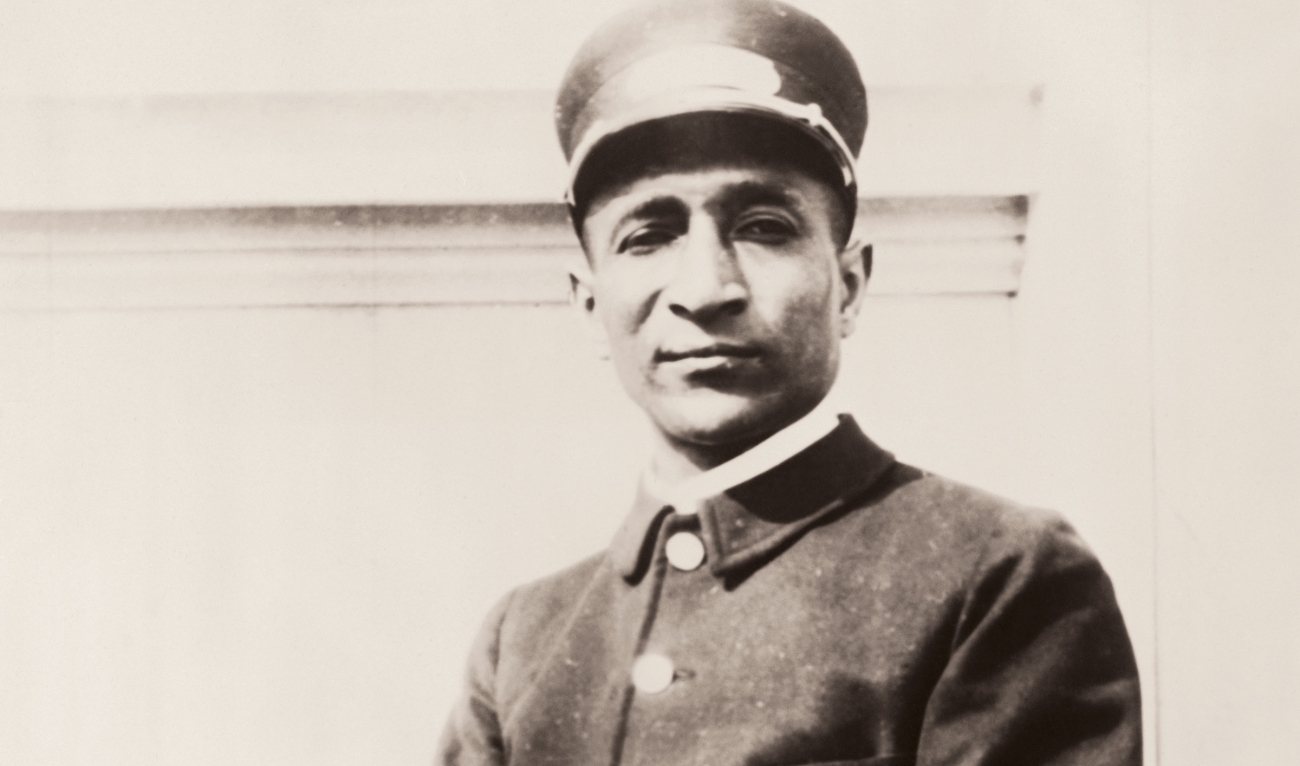The Other Side of the Tracks
On a routine run of the New York, New Haven & Hartford line in 1924, Tuck economics professor Malcolm Keir met a Pullman porter. John Baptist Ford, 38, had spent 18 years carrying luggage, dishing out food, and serving the needs and whims of parlor-car passengers. “We talked about life and death, what they meant to us,” Ford later said of Keir. The professor came away impressed by how much Ford had gained from his plebeian work and how he’d made the most of his lot in life. He had grown up with no schooling while picking cotton in South Carolina for 65 cents a day.
In the decades before World War II, African Americans rarely received formal education beyond primary school, and Dartmouth enrolled few, if any, Black students. So, when Ford appeared as a guest speaker in Keir’s transportation class on March 25 that same year, he created a national sensation.
“Whatever you do, do it well. I’d rather be a good porter than a bad president.”
Top Pullman Company executives in Chicago, sensing a publicity bonanza, had granted Ford an unheard-of couple of days off from work after Keir invited him to campus. The porter earned a standard lecture fee and had all expenses covered, including lodging at the Hanover Inn. Other class speakers that semester included business leaders and industrial tycoons such as the president of Merchants National Bank of Boston, the VP of Ford’s railroad, and a Columbia University professor. Ford, who had never delivered a speech, fussed over 10 drafts and various rehearsals. He titled his talk “The Practical Side of Transportation: The Life of a Pullman Porter.”
He told the class that he couldn’t read or write until he was 17, when he began a four-year stint of kitchen work at an all-Black school in Columbia, South Carolina, in exchange for a remedial education. He described how he became a porter and insisted, when asked, that the railroads ran their passenger trains safely and efficiently. He noted that a porter, if hard-working, attentive, and thick-skinned, could not only improve his position in the company but also learn a great deal—about the job, about people, and about the world. “Whatever you do, do it well. I’d rather be a good porter than a bad president,” Ford told the students.
“Some time in the course of the first five or ten minutes he and his audience simultaneously discovered that he was not only a good porter but a natural-born orator,” reported The New York Times. Ford spoke to three sections of the class—about 100 students—but after the first hour, more came as word of the sensational speaker spread across campus. Professor John M. Mecklin squeezed his entire sociology class into the room. Few were surprised that Ford had once aspired to be a minister.
Curious students peppered him with questions: Could a porter gauge a man’s wealth by his behavior on the train? Are male or female passengers more difficult? Should porters unionize? Ford explained why he opposed organizing efforts: “The Pullman Company does a lot for us in the way of free dormitories at the ends of certain runs, free medical examinations, free insurance, free night schools.” What’s an appropriate tip for a porter, someone inquired. “Let your conscience be your guide and the sky your limit,” Ford replied. The students laughed, but the quip reflected the stark reality that porters, who made $60 a month, relied on tips for income. The average tip of 25 cents could raise a month’s earnings above $80.
Ford identified the menial work of a railroad porter as one of the only avenues open for Black families who hoped to enter the middle class. Every summer, the company hired a few thousand porters, mostly students, to augment its normal ranks of about 10,000. “A porter begins as an extra. He doesn’t make much, but he does get a chance to travel,” Ford explained. “Some of them are going to be doctors, lawyers, ministers, or businessmen, and they manage to do their studying in the slack time at night. The company gets the best men of my race.” He estimated that 30 percent of Black doctors, for example, had once worked as Pullman porters.
In fact, at least two Black Dartmouth students of the era worked on Pullman cars: Theodore M. Selden, class of 1921, who went on to law school at the University of Pennsylvania, and Hildrus A. Poindexter, who worked summers as a porter while he studied medicine at Dartmouth from 1924 to 1927. Poindexter became a leading expert on malaria, and the College awarded him an honorary degree in 1956.
More than 40 periodicals ran stories about Ford’s visit, including the Detroit Free Press and The Boston Globe. “Pullman Porter Wins As College Lecturer,” The New York Times declared. Collier’s magazine later noted that only 12 hours after Ford’s talks, more than a million people had read about him, and that he had become a “national figure” in just 12 days.
“I got a late start in life, but I’ve got a lot out of it—and my children will get more,” Ford told the magazine. His job enabled him to live in a small two-family house in the East Bronx, New York, with his wife and their three children, all of whom attended college. One, John Stanley Ford, became the first Black software engineer employed in the United States when IBM hired him in 1947—the same year Ford died at age 61.
RANDY K. SCHWARTZ, a retired mathematics professor, lives in Ann Arbor, Michigan.











